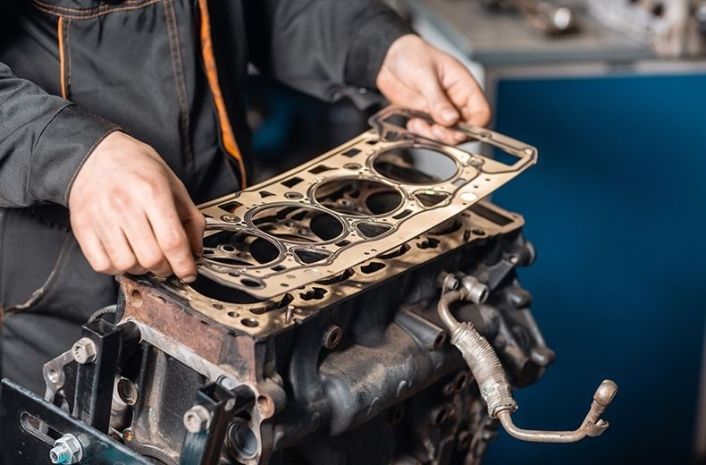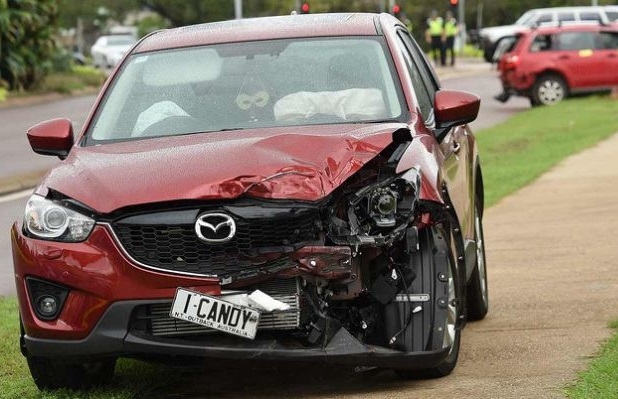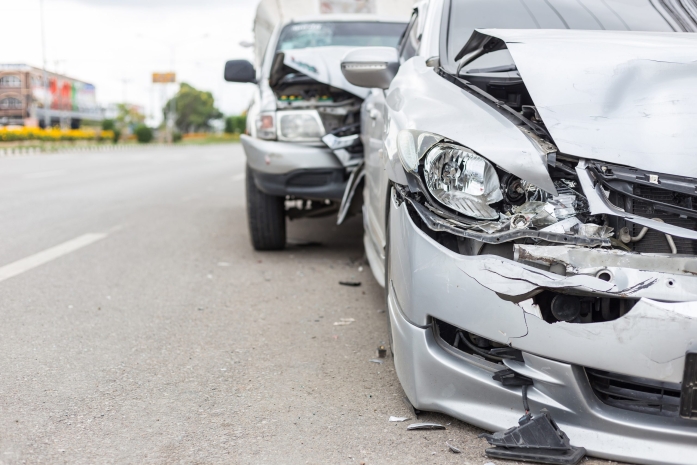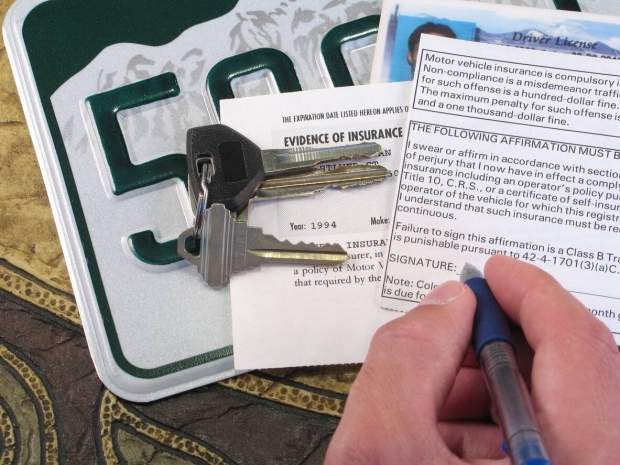The phrase "blown engine" can refer to several things that can happen to a vehicle. If you’re a car owner, hearing this phrase should send a few shivers down your spine, knowing that you’re in for a hefty repair bill.
6 Signs of a Blown Engine Every Car Owner Should Know
The engine being blown in a car is a pretty loose term. But the most common use of the term is to encompass any major damage to internal engine components or if the engine is worn out significantly.
Wondering how to tell if the car engine is blown? Here are 6 blown engine symptoms to look out for.
1. White smoke is coming from the exhaust
If you see white smoke coming from the exhaust, it usually means you have coolant in your engine, which is a pretty serious problem. Unlike typical exhaust smoke, the consumption of coolants will produce an awful chemical smell.
2. Blue smoke coming from the exhaust
Blue smoke may billow from your tailpipe, indicating that the combustion chamber is flooded with engine oil. If it's consistently happening, it's usually a sign that you're going to need an engine rebuild or replacement.
3. If you hear loud knocking sounds
Sometimes, your car will have a knocking sound that will eventually go away. If this is not the case, then your engine is probably suffering from wear and tear. A blown engine sound has knocking metallic clanks, which means it’s probably on its last legs.
4. Your car’s engine won’t start
Your engine not starting can be due to many factors. It might mean that you need a new battery, a new alternator, or a new starter. If your engine is spewing fumes or has knocking sounds before ultimately dying out, then you definitely have a blown engine.
5. The caps and the hoses keep coming off
The engine caps and fluid hoses pop off because of too much engine pressure. The pressure builds up because of the fuel combustion. If left unrepaired, you might suffer massive oil or coolant leaks.
6. Your car engine lacks power
It's normal for cars to lose power over time. But if your car has a 200 horsepower engine, you feel like your car is dragging along with just about half of its power, then you have a blown engine.
These are the usual 6 signs of a blown motor. If your car is showing any of the blown motor symptoms, consider selling it.
What Causes an Engine to Blow
In the lifetime of a vehicle, major engine failure rarely happens, but you can spot the signs an engine is blown. What causes an engine to blow? Here are the 4 most common reasons why you will have a blown motor.
1. Submerged or Hydrolocked Engine
The engine is not built for compressing water. If water finds its way into the cylinders, the piston and piston rods will break or bend when it attempts to compress water-mixed fuel.
2. Timing belt failure
When the engine is running, ticking sounds from beneath the hood can indicate that the timing belt will fail. If your car's timing belt fails, the pistons may collide with the open valves. Sounds like metal clanking loudly is one of many blown piston symptoms.
3. Low levels of engine oil
If you don't have enough oil in your engine, it will eventually break down. When the oil pressure warning is lighted, you should turn off the engine as soon as it is safe to do so.
4. Overheating
When the temperature gauge begins to rise, pull over and come to a complete stop. Allow the car engine to cool down and check for a coolant leak. If you’re having issues with overheating, then it’s one of the most obvious blown engine symptoms.
What Happens When Your Engine Blows While Driving
So what happens when your engine blows while driving? Overheating can damage and crack the engine block. A blown timing belt will damage pistons and valves. Connecting rods could be bent or have blown cylinders. Unless it’s an emergency, do not try to drive if your motor is blown up. Even if you can start the automobile, you risk a major fire.
Once your engine has failed, you must either repair it immediately or sell it. If you need to where to sell car with bad engine, Junkcarsus will be glad to help. Sell a totaled car and get fast cash, we provide the best deal in town.
Should You Repair or Replace a Blown Motor?
It’s worth repairing a blown engine if the problem can be solved by replacing a few parts. However, if the damage is severe and unrepairable, you may need an engine replacement. Below is the cost estimate of blown engine repairs.
Blown piston rods and rings
It will cost around $1,500 to $2,500 to repair damaged piston rods and rings. The mechanic will then recondition the blown cylinders and replace all defective parts.
Damaged engine valves and seals
Valve and oil seal replacement will cost between $900 and $1,800. The exact cost will be determined by the make and model of your vehicle. Valve seal replacement necessitates removing the entire engine before the valve spring can be reached.
Blown head gasket
The cost of replacing a head gasket ranges from $1,000 to $2,000 on average. It is often easier and less expensive to scrap car for cash than to buy a replacement head gasket.
Oil leaks
Repair charges might range from $150 to $1,200 depending on the type of car you have, the engine, and the location of the oil leak. Gaskets and seals can develop minor leaks as a result of your engine's natural heat and cool cycles.
Engine rebuild
What to do with a car with a blown engine? In terms of parts and labor, a typical engine rebuild costs between $2,500 and $4,000. This consists of changing bearings and seals, as well as removing and reinstalling the engine. Due to warping, cylinder heads and blocks may need to be resurfaced.
Engine replacement
The cost of replacing a broken engine is frequently greater than the value of the vehicle. A four-cylinder engine costs between $4,000 and $5,000 to replace on average. V6 or V8 engines will cost between $5,000 and $8,000.
Average Repairment Costs
Below is a table to summarize the costs:
Parts to be repaired | Cost of repairs |
Blown piston rods and rings | $1,500 to $2,500 |
Damaged engine valves and seals | $900 and $1,800 |
Blown head gasket | $1,000 to $2,000 |
Oil leaks | $150 to $1,200 |
Engine rebuild | $2,500 and $4,000 |
Engine replacement | $4,000 to $8,000 |
How to Prevent Blowing up Your Car Engine
If you have a good running car or recently rebuilt engine, you can do some preventive measures to keep your engine from blowing up.
Check and replace critical engine fluids like oil and coolants regularly. Also, look for evidence of wear or clogging in the air filter. Follow the manufacturer's recommended maintenance guidelines to determine when to visit your auto service.
Regulate your driving speeds, being sure not to accelerate too quickly or brake too hard. Fast acceleration and braking put more strain on your engine, which can cause it to blow.
Junkcarsus is a Trusted Buyer of Cars with Blown Engines
If your car is showing signs of a blown engine and you don’t want to spend the cash on repairing it, we can help. We are a trusted junk car buyer, and we buy totaled or places that buy wrecked vehicles cars of any make and model.
We pay cash for junk cars, and we have a quick process that allows us to process everything in a day. Just call us at (855) 547-1550, and our friendly staff members will answer all your questions.
FAQ block
What are the signs of a blown engine?
You can tell that the engine may be blown if white or blue smoke is coming from the exhaust. Another sign is when you can hear knocking sounds from the engine. You might also notice that caps and hoses are loose or coming off thus car fluids leak out from the engine. If your car keeps shutting down, it could be a sign too.
What causes an engine to blow?
Overheating is one of the major reasons for blown engines. Wear and tear on the timing belt, cylinders, and piston rods will also result in a blown engine. Lastly, if cars are not properly maintained, it will quicken the rate of wear and tear on your engine. If this happens, it might be better to sell your car.
What happens when an engine blows while driving?
If the engine blows while you’re driving the car, the engine should immediately lose power or shut down. Your engine temperature might also be maxed out and thick smoke coming out of the exhaust. If somehow the engine is still running, you should immediately park and turn off the car.





